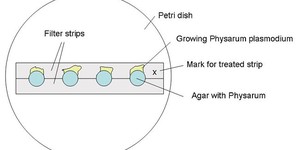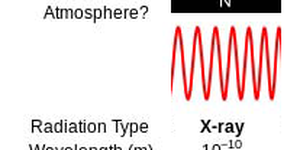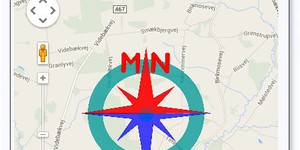Twelfth Grade Science Projects (175 results)
Science Buddies' twelfth grade science projects are the perfect way for twelfth grade students to have fun exploring science, technology, engineering, and math (STEM). Our twelfth grade projects are written and tested by scientists and are specifically created for use by students in the twelfth grade. Students can choose to follow the science experiment as written or put their own spin on the project.
For a personalized list of science projects, twelfth graders can use the Science Buddies Topic Selection Wizard. The wizard asks students to respond to a series of simple statements and then uses their answers to recommend age-appropriate projects that fit their interests.
Let us help you find a science project that fits your interests, with our Topic Selection Wizard.|
Select a resource
Sort by
|
In this biology science fair project, you will observe how the Physarum polycephalum (P. polycephalum) organism responds to various amounts of glucose. P. polycephalum is easy to grow in a petri dish and responds in complex ways to its environment. Will it grow toward the chemical as it looks for a meal, or will it flee, trying to avoid further contact? Try this science fair project to learn more about chemotaxis in the fascinating Physarum polycephalum.
Read more
Featured
Have you heard that garlic powder is supposed to inhibit the growth of bacteria? Which do you think would make a better disinfectant: a solution of garlic powder or a solution of bleach? This project shows you a straightforward way to compare the effectiveness of different disinfectants (or other antimicrobial agents), by measuring zones of inhibition on a culture plate.
Read more
The Sun is the ultimate source of the energy that powers weather systems on Earth. Geomagnetic storms are sun-powered storms in the upper atmosphere, arising from energized particles that are periodically ejected by the Sun. Among other effects, geomagnetic storms can wreak havoc with earth-orbiting satellites, and disrupt satellite communications. The global positioning system (GPS) is a network of 24 earth-orbiting satellites that constantly sends radio signals through the earth's…
Read more
This project is a great way to "bring home" the concept of energy use. All you need to get started is a good-sized sample of monthly electric bills from households in your area. Building from this simple beginning, you can ask questions that can take you in many different directions. For example: How much electricity does the "average" person in your area use per month? How much does electricity use vary among different families?
Read more
What makes a winning team? Getting all the best players? Good coaches? Good chemistry? This project will show you how you can use math to help you test your hypothesis about what makes a winning team.
The Pythagorean relationship is a fundamental one in sports: it correctly predicts the records of 98% of all teams. But in 2% of cases, it fails. Why does it fail? Find teams that deviated substantially from their expected Pythagorean record (this information is available for baseball teams…
Read more
Here's a sports science project that shows you how to use correlation analysis to choose the best batting statistic for predicting run-scoring ability. You'll learn how to use a spreadsheet to measure correlations between two variables.
Read more
Have you ever wondered how X-rays affect living organisms? You have probably had X-rays taken at the dentist's or
doctor's office. These X-rays are considered to be relatively safe, but every X-ray exposes a person to some radiation,
specifically electromagnetic radiation. Radiation is energy that travels through space as either waves or high speed
particles. Watch this video to learn more about electromagnetic radiation.
When the energy in X-rays encounters an object, it can…
Read more
We rely heavily on our senses to tell us about our environment. But in addition to the senses of touch, smell, taste, hearing, and sight, some animals are able to sense Earth's magnetic field. Migratory turtles and birds use this sense to guide them on long journeys. Homing pigeons use it to find their way home. New research suggests that large mammals, such as cows and deer, may also have the ability to sense the direction of magnetic north. In this animal behavior science project, you will…
Read more
Beats are a pattern of oscillating sound intensity (i.e., the volume of the pattern grows and fades with a regular cycle). They occur when two tones of almost equal frequency interfere. People can perceive beat frequencies below about 7 Hz. Figure out how to create sound files to play pure tones on your computer. Create files with a pure tone of one frequency in the left channel, and a pure tone of a different frequency in the right channel. Systematically explore different frequency…
Read more
The DNA in our cells contains our "blueprints," but it's the proteins in our cells that do most of the work. The Human Genome Project has allowed us to start reading the blueprints, but we still don't understand what most of the proteins do. This is a fairly advanced project that explores ways of identifying the function of unknown proteins.
Read more
Students who are mathematically inclined can use the student version of a program like MatLab or Mathematica to convert a digital image into numbers, then perform operations such as sharpening or special effects. This is a great way to learn about image processing algorithms.
Read more
|
Explore Our Science Videos
Video Game Demonstration
Find Your Blind Spot!
Design and Make Automata










